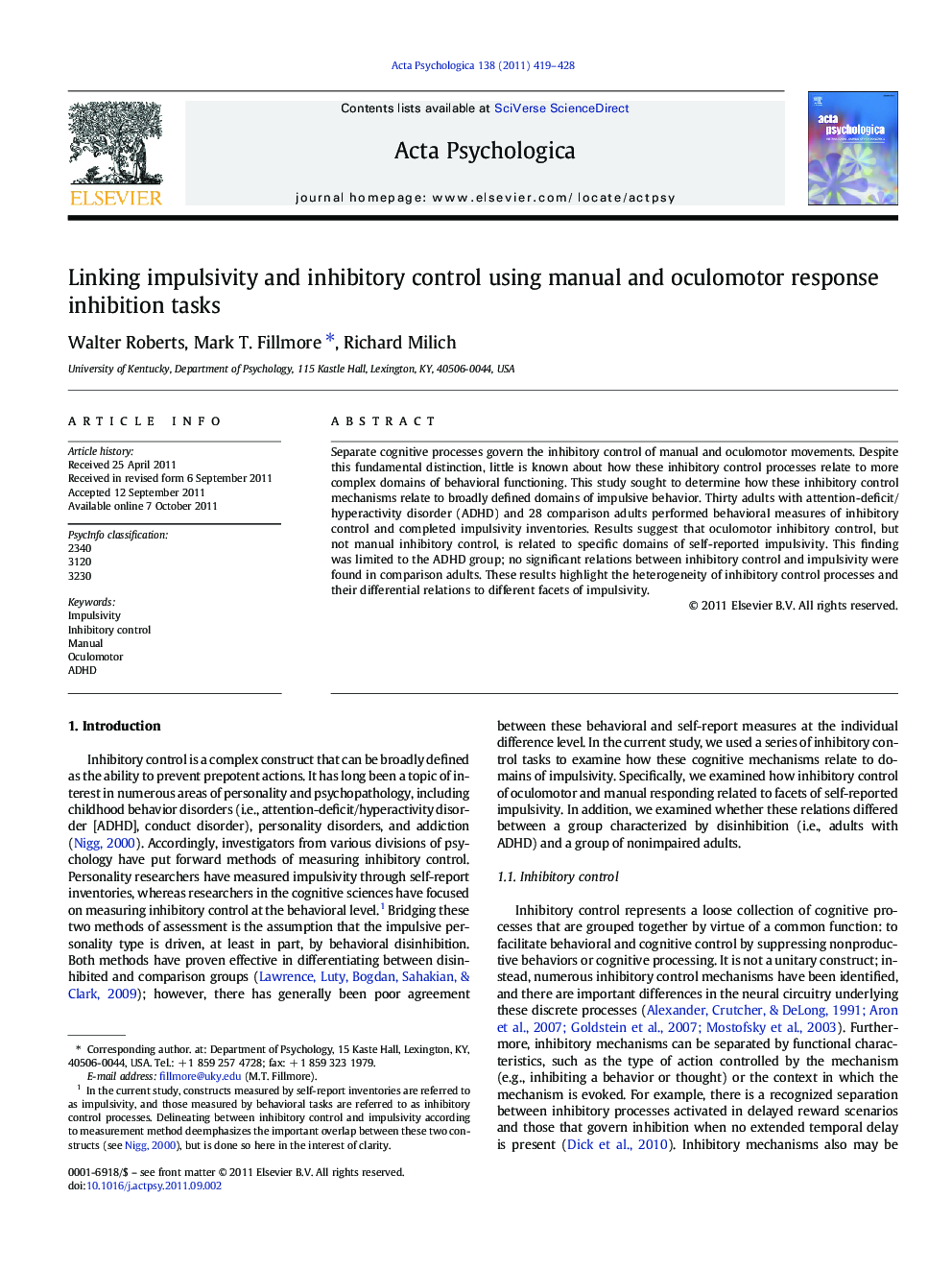| Article ID | Journal | Published Year | Pages | File Type |
|---|---|---|---|---|
| 920049 | Acta Psychologica | 2011 | 10 Pages |
Separate cognitive processes govern the inhibitory control of manual and oculomotor movements. Despite this fundamental distinction, little is known about how these inhibitory control processes relate to more complex domains of behavioral functioning. This study sought to determine how these inhibitory control mechanisms relate to broadly defined domains of impulsive behavior. Thirty adults with attention-deficit/hyperactivity disorder (ADHD) and 28 comparison adults performed behavioral measures of inhibitory control and completed impulsivity inventories. Results suggest that oculomotor inhibitory control, but not manual inhibitory control, is related to specific domains of self-reported impulsivity. This finding was limited to the ADHD group; no significant relations between inhibitory control and impulsivity were found in comparison adults. These results highlight the heterogeneity of inhibitory control processes and their differential relations to different facets of impulsivity.
►We tested the relation between impulsivity and inhibitory control. ►We examined the difference between oculomotor and manual inhibitory control. ►Oculomotor inhibitory control was closely related to impulsivity. ►Manual inhibitory control was not predictive of impulsivity. ►These patterns of relations were most evident in adults with ADHD.
